A network of trade routes that connected China and Asia to the Mediterranean world.
The Silk Road
Why is Zhang Qian often called the Father of the Silk Road?
This explorer opened the way for trade with western cultures.
The Great Wall of China lay to the north of part of the Eastern Silk Road. How did the Great Wall affect travelers on the Silk Road?
The Great Wall gave protection against bandits from the north.
Which physical feature made it most difficult for traders to travel the Western Silk Road?
mountains
What is cultural diffusion?
Cultural diffusion spreads ideas, knowledge, and goods.
Starting in China, this portion of the road contained dangerous deserts and bandits. Fine dishware (china), silk, and spices were traded here.
Eastern Silk Road
One of the most important Roman products that trade along the Silk Road brought to China was...
glassware
What would have been the greatest danger to traders crossing the Taklimakan Desert?
Sandstorms
According to the map, what is one reason that Kashgar became a major trading center?
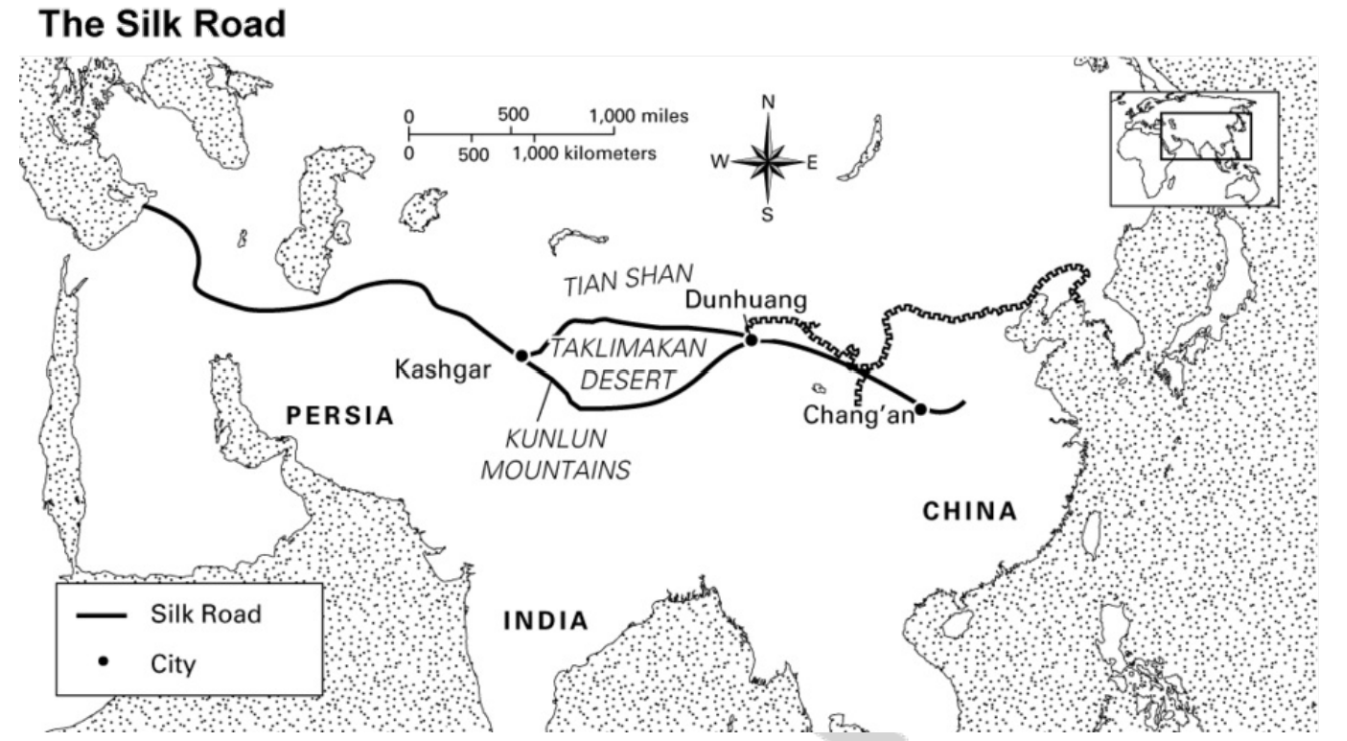
it was about halfway along the Silk Road; several different routes came together there
Identify examples of Cultural Diffusion on the Silk Road.
Languages
Beliefs
Religions
Foods
Goods
An ancient Chinese explorer, often called the Father of the Silk Road. His journeys west from China opened the way for trade with western cultures.
Zhang Qian
What made silk so valuable?
The Chinese were the only ones who knew how to make it.
What was the most important reason why traders formed long caravans to cross the desert?
to protect each other
Which part of the Silk Road was known as the "trail of bones"?
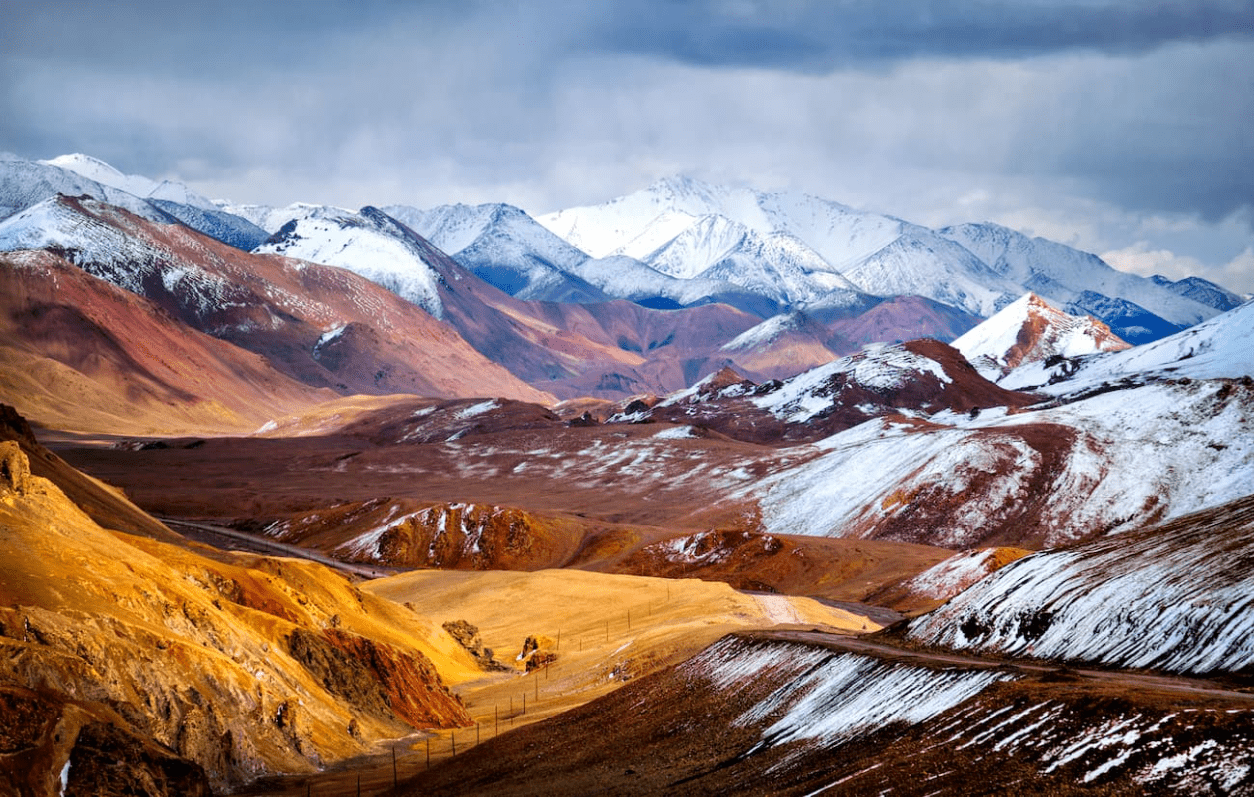
the Pamir Mountains
What do the three items pictured below have in common?
They all came to the West from China.
There are examples of cultural diffusion on the Silk Road.
Ending in Antioch (Rome), this portion of the road contained dangerous mountain passes as well as animals in the Syrian Desert. Carpets, gold, and glassware were traded.
Western Silk Road
Why did people in China want horses from other places?
The horses were larger and more powerful than Chinese horses.
Which of the following goods came to China from India?
spices
Why did the Western Silk Road end at Mediterranean sea ports such as Antioch?
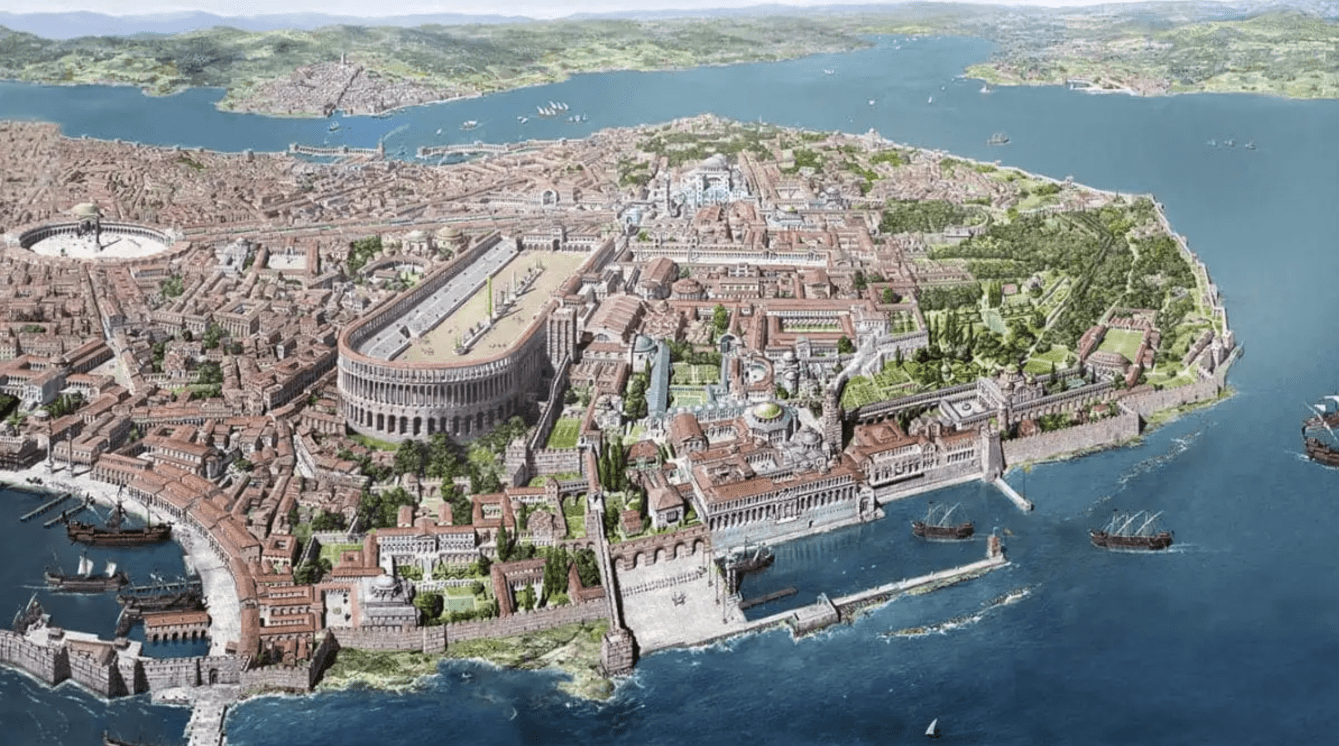
Goods could be loaded there onto ships to be taken to other lands.
How did the Silk Road most affect the spread of Buddhism?
Travelers carried Buddhist beliefs from India to China.
The spreading of cultural traits, such as goods and ideas, from one culture to another.
Cultural Diffusion
Examine the map. During the time of the Han Dynasty, which group of people threatened China?
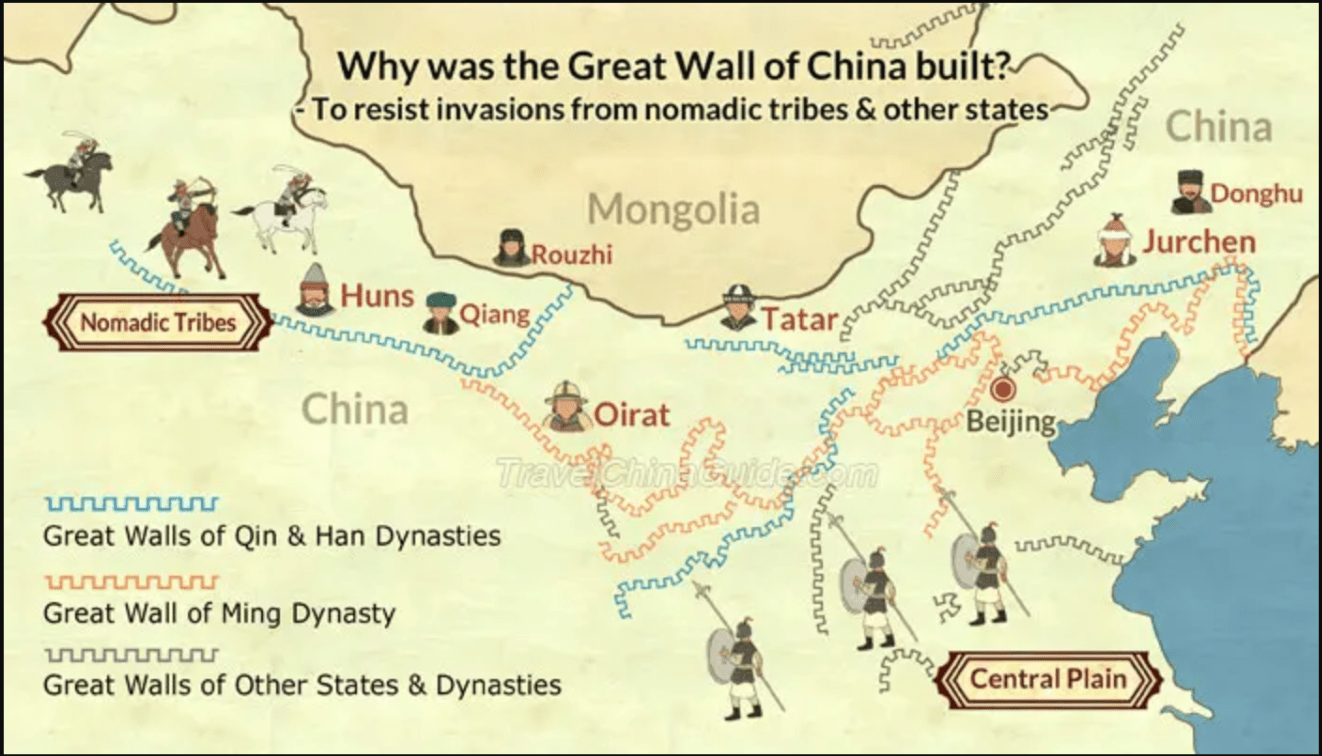
the Huns
The Silk Road split into a northern route and a southern route. What was one advantage of taking the northern route?
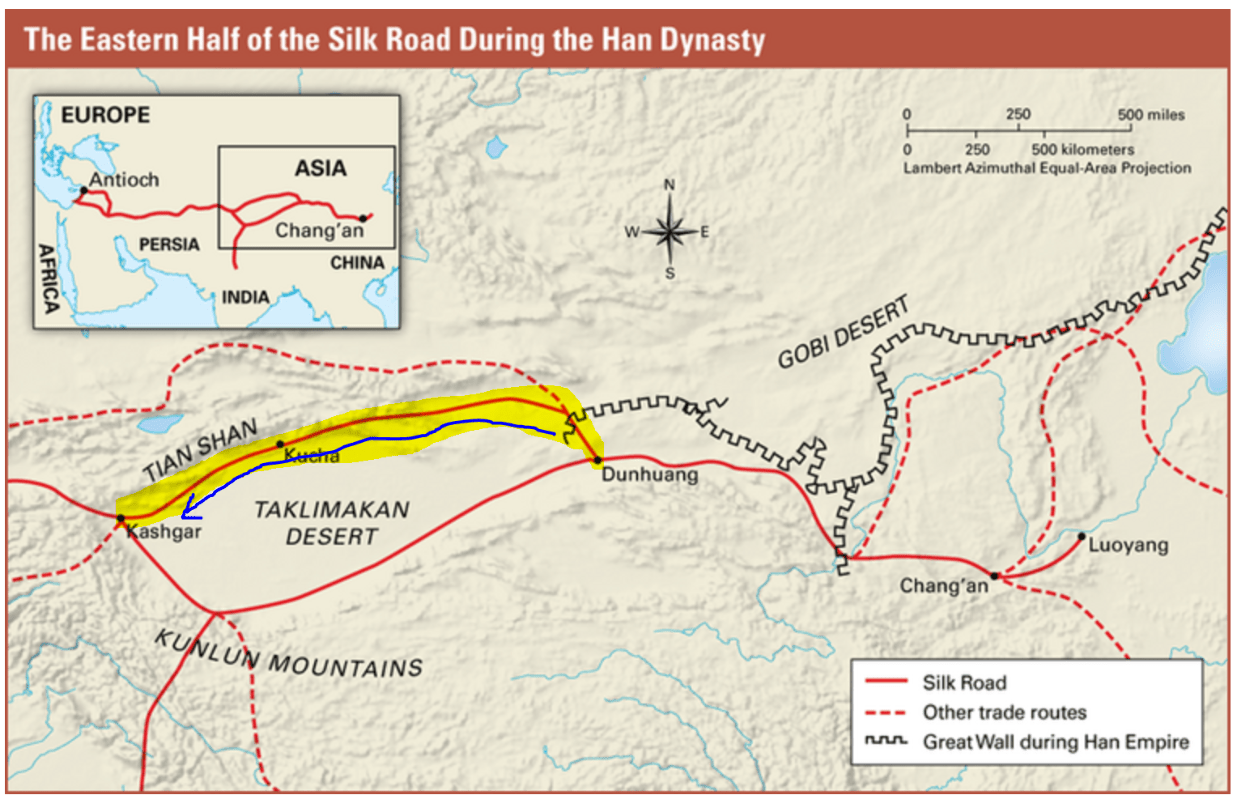
Oases (fresh water) were closer together.
Two products the Romans exchanged for Chinese silk were glassware and
gold
How did trade on the Silk Road affect what people ate in China?
Trade brought new foods to China and changed the diet of people
Eastern Silk Road
_____ _____is considered the father of the Silk Road. He was unable to form an alliance with China's northern enemy, the ______. However, his journeys _______ helped him establish relationships with other peoples and learn about their cultures.
Zhang Qian, Huns, West
Students in middle trading centers finished sooner than students at trading centers at the end.
- What do you think this illustrates? Who had to travel the farthest to get the products they wanted?
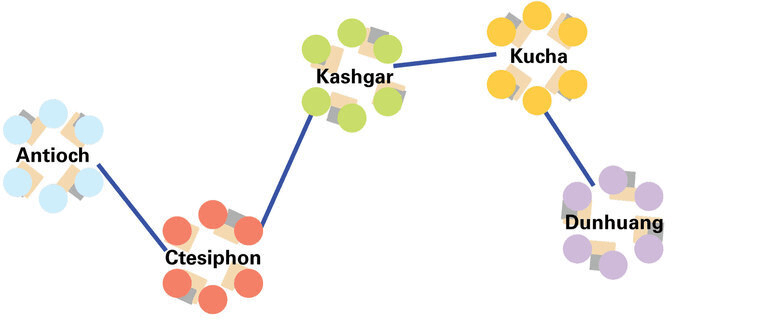
It took a long time for goods from China and Rome to reach the opposite location. Antioch and Dunhuang traders had to travel the furthest.
Most students did not travel to all the stations.
- Why do you think most traders did not travel the entire route?
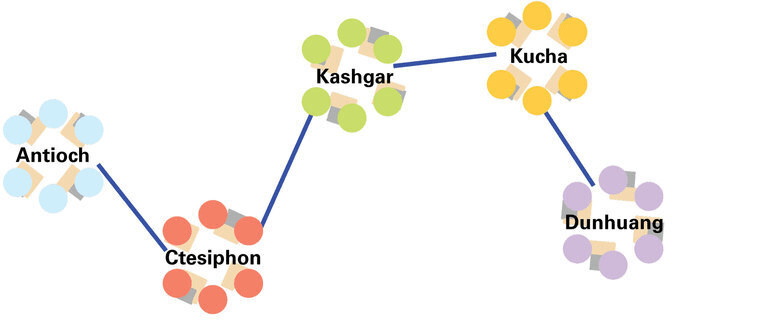
Traders used local trade routes rather than using the entire Silk Road.
True/False: The religion of Buddhism originated in China and was spread to India on the Silk Road.
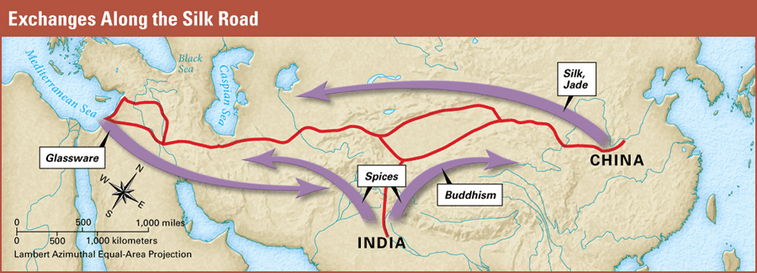
False. Started in India and spread to China